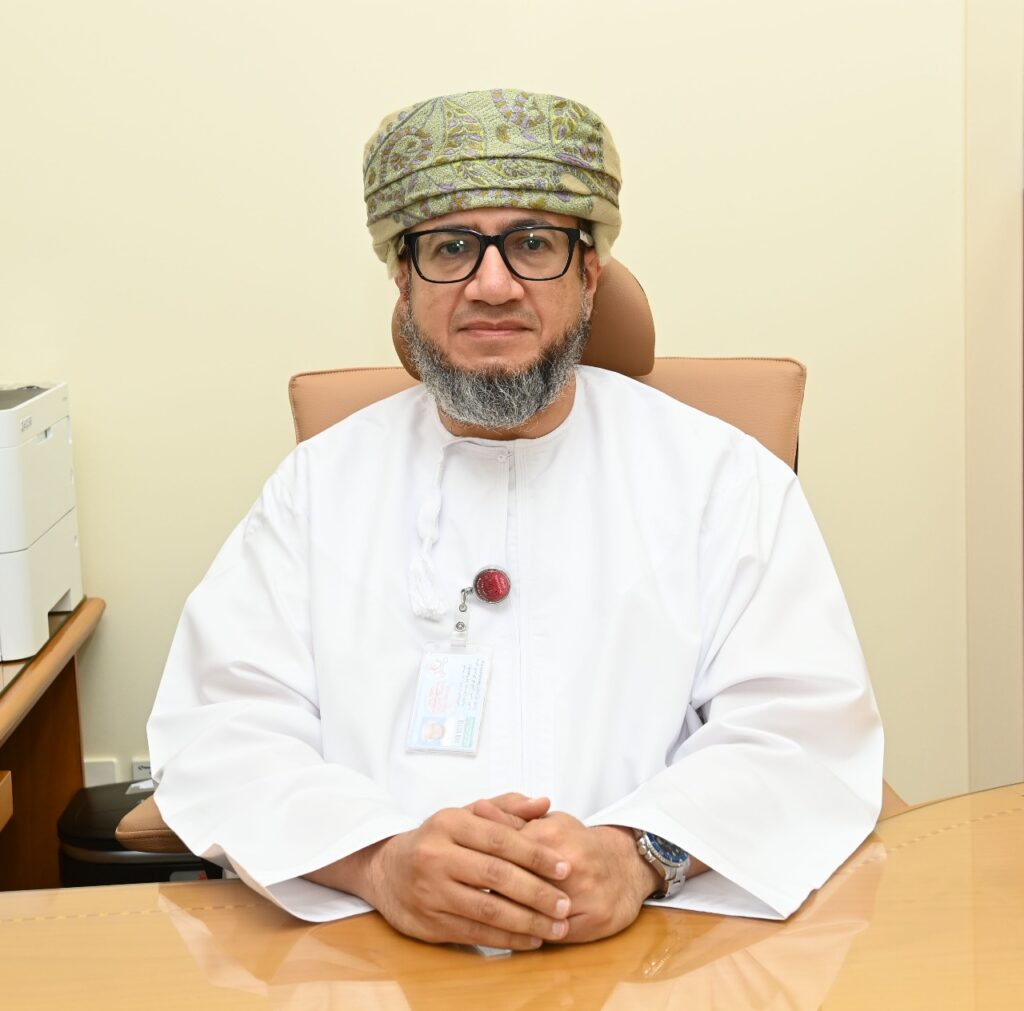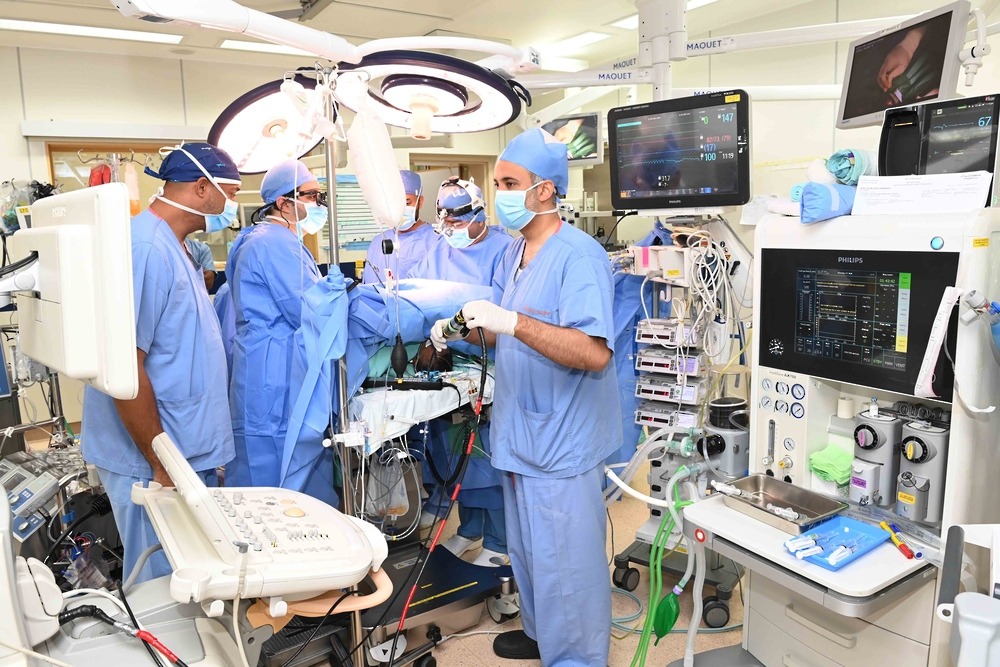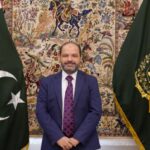Muscat :Since its opening in 2015, the centre has been making rapid strides towards leadership and excellence in providing cardiac healthcare, affirming its position as a reference medical institution at the local, regional and international levels.
Speaking to the Oman News Agency, Dr. Najib bin Zahran Al Rawahy, Director of the National Heart Center, stated that the centre was founded on an ambitious vision to lead in the treatment of cardiovascular diseases and to deliver high-quality healthcare to citizens and residents across all age groups.

Read More
- Childhood high blood pressure doubles in 20 years as obesity crisis deepens, 114 million children affected
- Medical team performs Oman’s first artificial heart transplant at Royal Hospital
- 38-year-old Nigerian patient with rare skull base tumour successfully treated at Aster Royal Al Raffah Hospital in complex 11-hour surgery
- Royal Hospital marks milestone with Oman’s first robotic surgery
- Walk your way to better health and happiness


The centre offers a full spectrum of advanced diagnostic, therapeutic, and surgical services for heart conditions, including arterial and valve diseases as well as congenital heart defects. It is equipped with cutting-edge technologies and medical devices to ensure the highest standards of care.
Dr. Al Rawahy emphasised that the center aims to be among the region’s and world’s top cardiac institutions by utilising advanced procedures such as catheter-based valve implantation and repair, treatment of arrhythmias, and dilation of narrowed vessels.
He pointed out that the centre actively attracts and trains highly skilled medical personnel and ensures continuous professional development through exposure to the latest techniques and technologies in cardiac care.
He stated that the National Heart Centre has witnessed remarkable developments since its opening in 2015. The scope of services has been expanded and developed to meet the growing needs of patients. This includes expanding services, increasing the number of surgical procedures performed to keep pace with the growing number of patients, and equipping the centre with latest technology in all subspecialties in the field of cardiac medicine and surgery.
He explained that the centre’s cardiac catheterisation department has witnessed significant developments, with the inauguration of several advanced catheters that are considered the most advanced internationally. The number of cardiac catheterisation sessions has also been increased from five to six daily sessions, which has contributed to increasing the department’s capacity and reducing waiting periods. The centre also provides services around the clock to cover intractable and complex cases, saving the lives of many patients.
Regarding the number of surgeries performed since the centre’s opening until December 2024, Dr. Al Rawahy confirmed that 9,168 cardiac surgeries, interventional catheterisation procedures, open-heart surgeries, and minimally invasive surgeries have been performed.
He pointed out that the success rate of the operations ranges between 93 percent and 96 percent depending on the type of operation, which is in line with the success rates of heart operations according to international standards. He pointed out that the centre performed 49,846 various interventional cardiac catheterization operations for adults, and 7,823 various interventional cardiac catheterization operations for children during the same period, with the success rate of the operations ranging between 97 percent and 99 percent depending on the type of operation, which is in line with the success rates of catheterization operations according to international standards.
Regarding the most prominent medical technologies used in cardiac surgery, he emphasised the centre’s commitment to keeping abreast of the latest developments in cardiac surgery. This includes minimally invasive cardiac surgery, one of the latest technologies in the field of cardiac surgery, where the procedure is performed through small incisions in the chest to minimize pain and reduce the patient’s recovery time.
He stated that the centre has introduced modern cardiac catheterization techniques that enable doctors to diagnose and treat heart conditions without the need for open surgery. It utilizes the latest technologies such as paediatric cardiac catheterization, cryotherapy for treating atrial fibrillation, and catheterization for treating heart rhythm disturbances using thermal cautery.
He added that the centre relies on advanced imaging technologies such as magnetic resonance imaging (MRI) and computed tomography (CT) to provide accurate images of the heart and blood vessels, helping doctors diagnose diseases with high accuracy.
These technologies also include the use of advanced cardiac monitoring techniques, such as remote cardiac monitoring devices, which allow doctors to closely monitor patients’ conditions and identify any potential problems early.
New innovations in the field of cardiac care include the “Electromagnetic Field Pulse” technology, one of the most advanced technologies in the world for treating atrial fibrillation, characterised by its high effectiveness and low incidence of complications. Another is the the “Aveir” wireless pacemaker, which works by sending electrical signals to regulate the heartbeat, has been introduced.
The centre’s recent successes was the first heart transplant from a brain-dead person for an Omani patient suffering from heart failure. The operation was performed by a fully integrated, multidisciplinary Omani medical team.
Dr. Al Rawahy also indicated that work is underway to modernize the operating rooms and catheterization laboratories to keep pace with technological advances in surgical techniques and various types of interventional catheterization procedures.
He explained that the centre encourages scientific research in the field of cardiac medicine and surgery, to develop new treatments and improve the quality of healthcare provided to patients, in addition to collaborating with local and international research institutions to exchange expertise and knowledge.
Commenting on the importance of community initiatives in raising awareness of heart disease and the importance of early detection, he pointed out that the centre has launched the “Heart of the Nation: One Heartbeat, One Goal” campaign to coincide with the tenth anniversary of its opening. This campaign underscores the centre’s pioneering role in caring for heart patients, intensifying efforts and ensuring appropriate treatment.
The campaign will cover all governorates of Oman and include community activities to educate citizens and residents about heart disease, prevention and treatment methods, and to showcase the latest treatment methods available at the centre. The campaign’s scientific activities will focus on cardiologists in the governorates to showcase the latest treatment methods and the mechanism for referring patients to the centre in a timely manner.
The National Heart Center in the Sultanate of Oman continues to transform its ambitious vision into a tangible reality, contributing effectively to raising the level of cardiac services in the Sultanate of Oman and the region, thanks to its advanced infrastructure, qualified staff, and pioneering technologies that keep pace with the latest international standards.
This has consolidated its position as a regional and international reference, making it a model to be emulated in providing comprehensive and advanced cardiac care, thus fulfilling its mission of preserving human health and serving the Omani community with dedication and sincerity.







